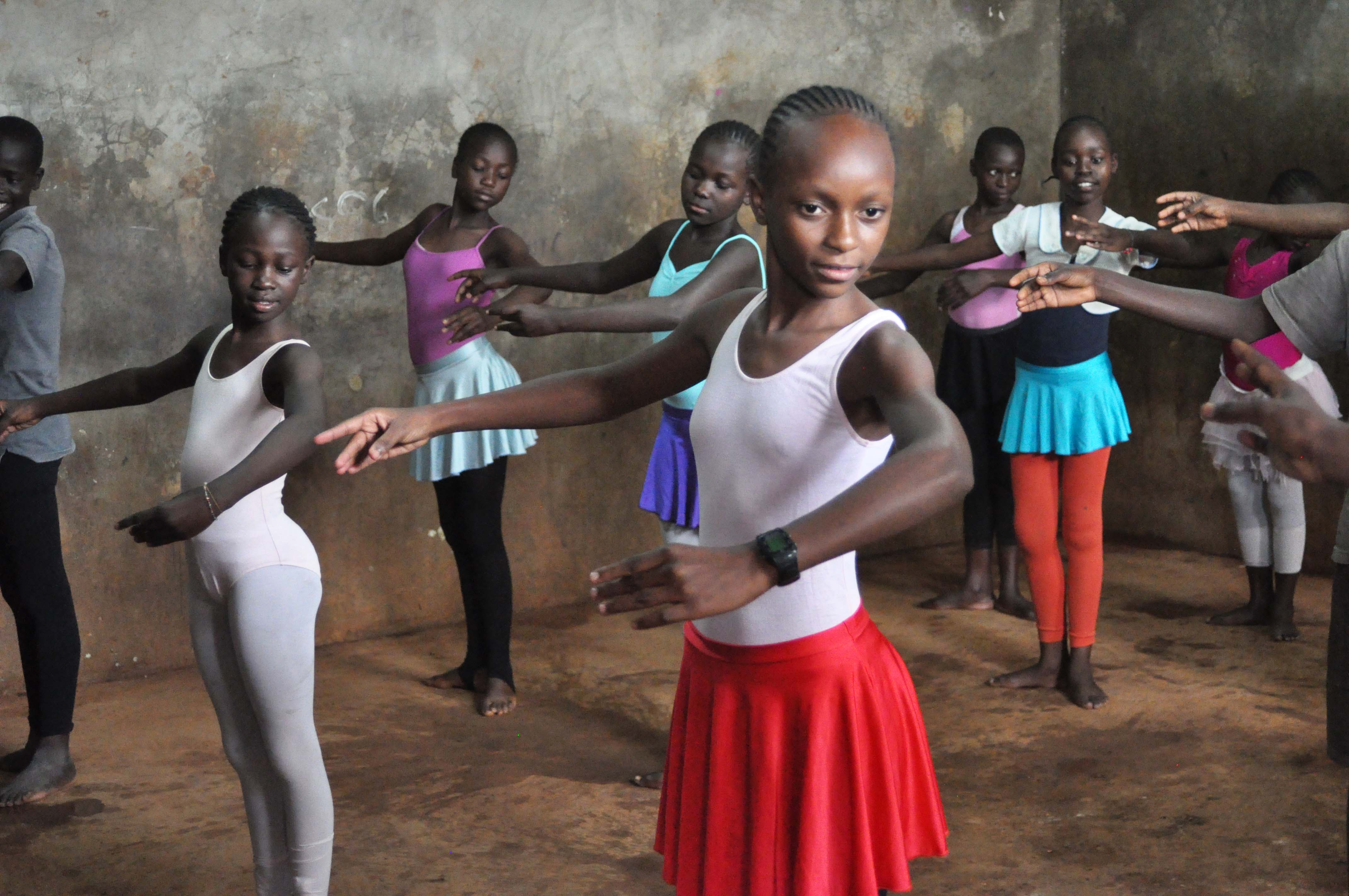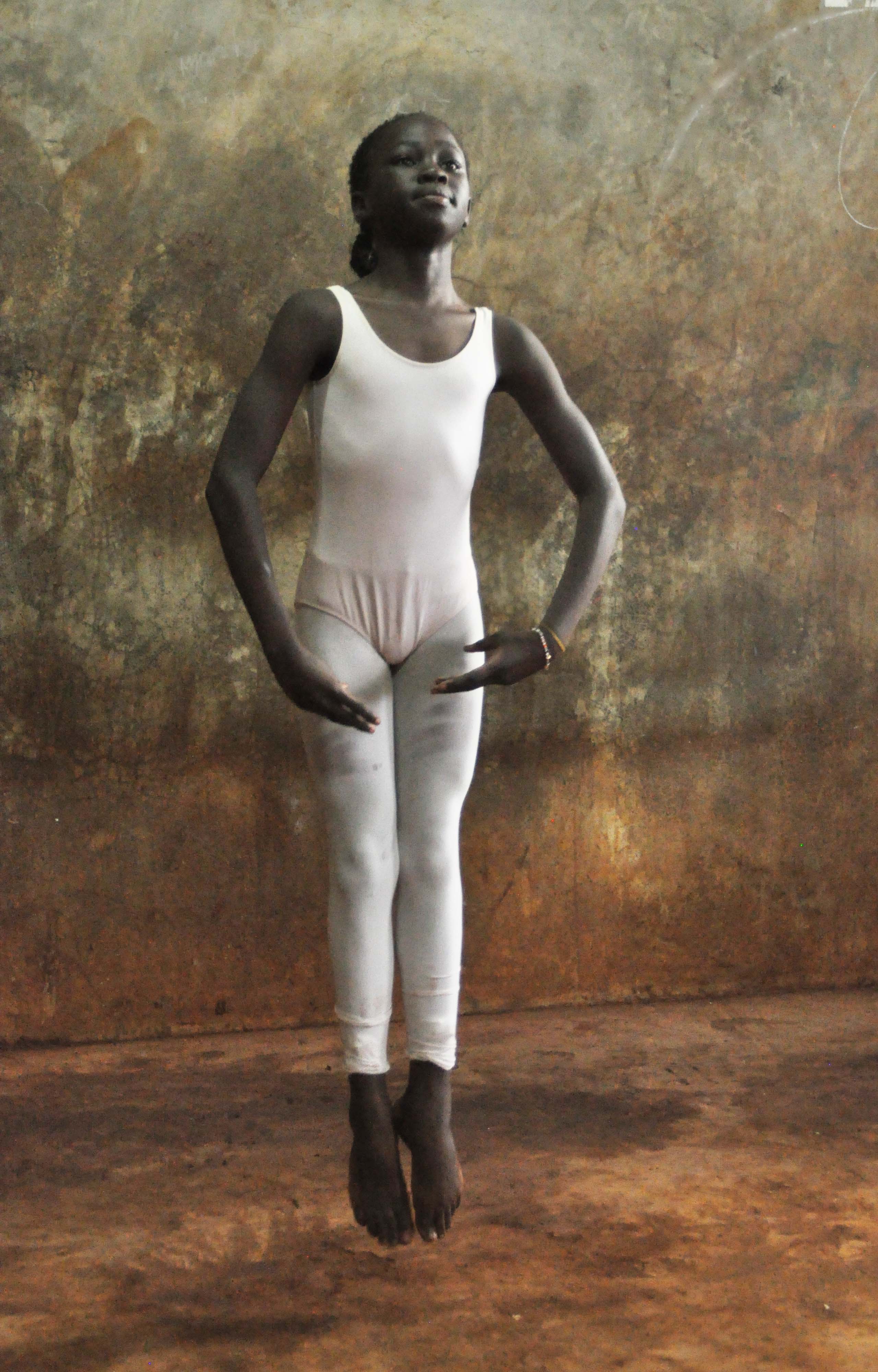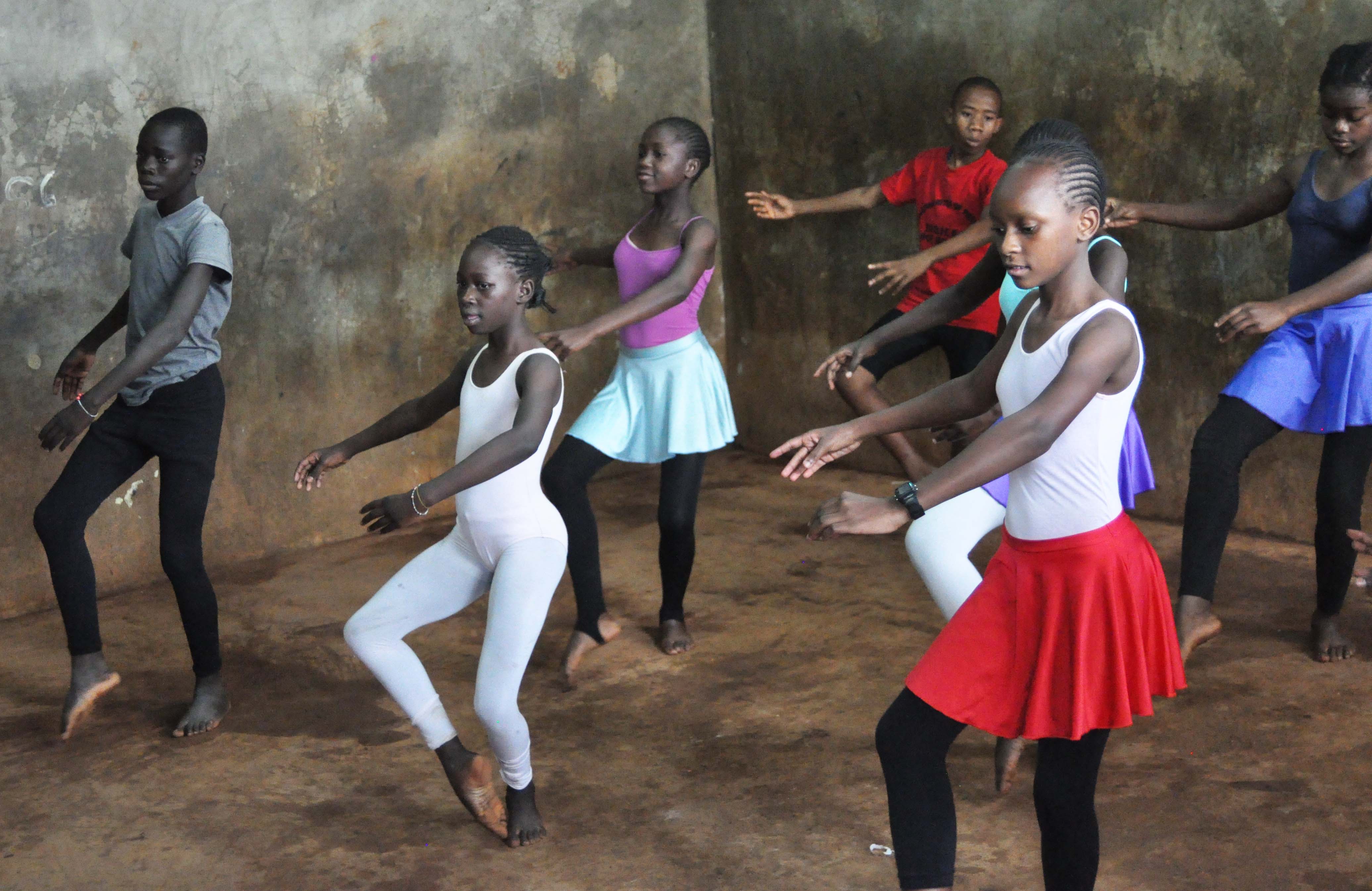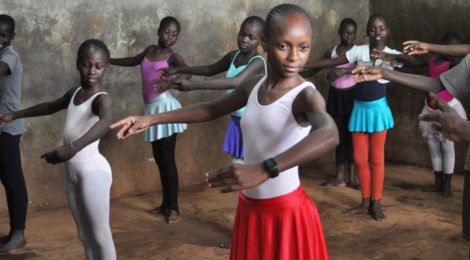
Anno’s Africa: escaping the poverty trap through dance and creativity
– Chiara Galvani –
Anno’s Africa is an English charity that offers an alternative, arts education to orphans and vulnerable children in some of Africa’s most overpopulated and poorest slums in the world. The idea behind this project is that through dance and creativity you can escape poverty and find self esteem.
We spoke with Bee Gilbert, director of Anno’s Africa and Anna Nygh, dance teacher, about the project and about how dance and art can be important resources to escape from poverty.
Interview to Bee Gilbert, director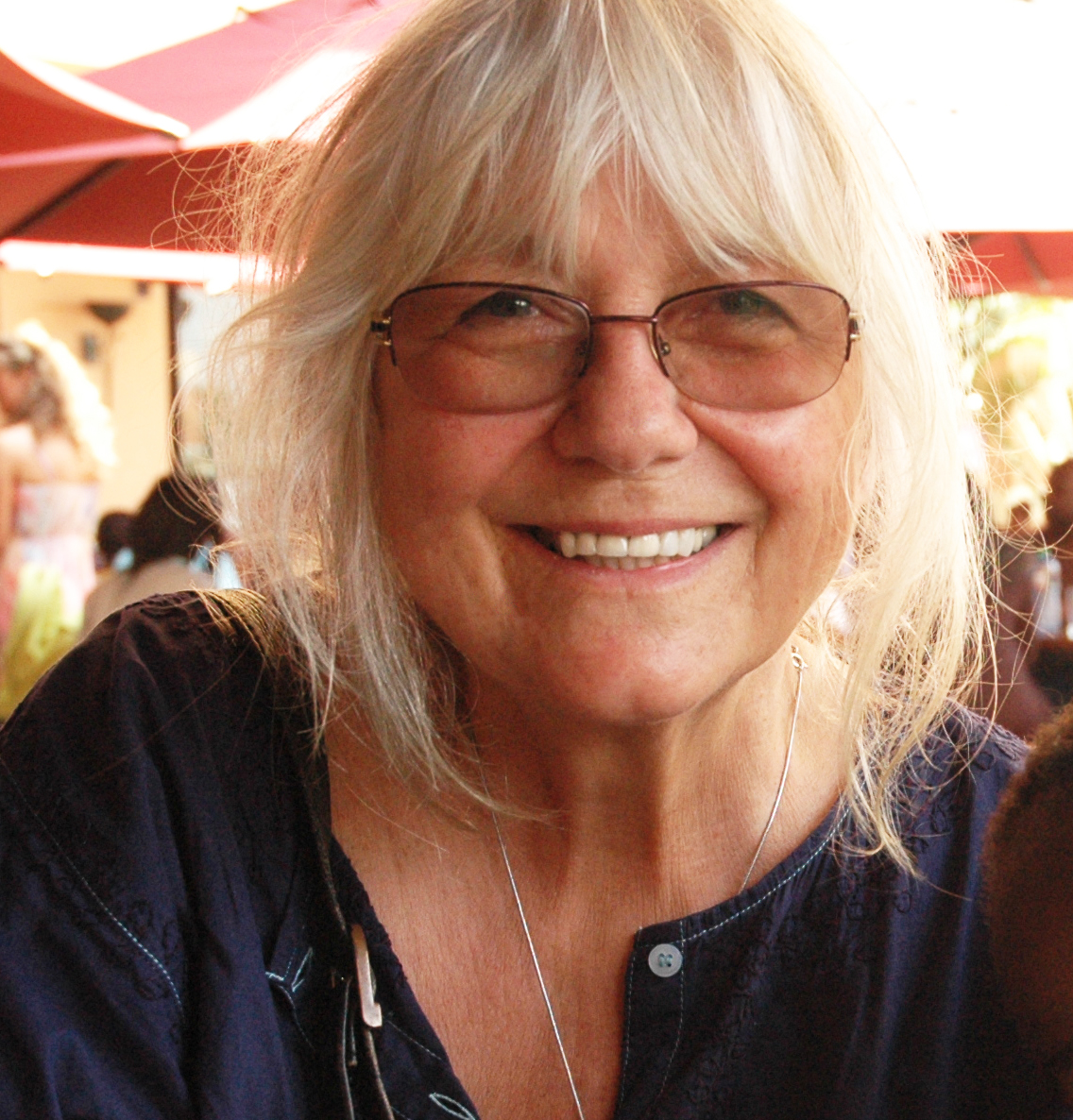
1) How was Anno’s Africa project born?
Kibera is one of the biggest slums in Africa. Why did you choose to launch your project there?
Anno’s Africa was born as result of the death of my son Alexander (nick-named Anno) in a car crash one month before his 21st birthday.
I went to Africa at the request of a friend shortly after Anno died to photograph a theatre group who were working on a theatre project to disseminate health education throughout the Kenya slums. Whilst I was there I met hundreds of children who had no access to a proper education and I thought that maybe there was something I should do to try in Anno’s name, to help these kids who had no real hope of ever escaping the poverty trap.
But what – and how?
The next year Anno’s father published a book of Anno’s poetry entitled “Who Said the Race is Over” and it sold many copies and raised over £6,000. We decided with this seed money to set up an alternative arts education charity for kids in the slums who had little chance of secondary education and thus could never achieve the necessary qualification to find professional work as adults. However, careers in the arts were certainly possible for them – so Anno’s Africa was created and we started work in the Nairobi slums in 2007 with 125 children, teaching various arts that we believed could help them change their lives – and their futures. We currently have over 15,00 children in the programme with many hundreds more having passed through our hands over the 10 years that we have been operating.
The programme not only offers practical opportunities for careers in the arts but also brings to these kids the joy and excitement of discovering their natural creativity and of course this journey helps to build their self-esteem when they discover their untapped talents – and thus sets them off on a more confident path into adulthood…
In fact, we didn’t start our programme in Kibera – we began in Majengo and then moved to Mathare also – and finally on to Kibera three years later. We still work in one school in Mathare and are in two in Kibera and one in Nakuru – a town three hours north of the capital. This year we are also beginning a programme in Northern Malawi.
2) What do art and dance mean to you?
Why did you choose art and dance as key factors of your project?
We don’t just teach art and dance – we hold classes in 6 major disciplines; Art, Dance (traditional and contemporary as well as ballet) Creative Writing, Drama, Music and Circus Skills. I am a photographer but also a writer and producer and spent my late teen years working with the Royal Shakespeare Company in the costume department and as a theatre stage manager – so I really love all the arts equally.
However, although the ballet has become the jewel in our crown as far as the general public is concerned, music and creative writing are possibly the most precious to me as they were where Anno’s passion lay.
3) Tell us the hardest moment and the best moment for Anno’s Africa
The hardest moments for me are when we have to choose the kids who are to participate as we can only have between 30 and 50 in each class and there are invariably many hundreds in the schools who are desperate to join!
The best moments are when we perform our end of year shows for the parents, guardians and the community and witness the joy and happiness on everyone’s faces – and know that we have made a real difference.
Speaking personally, working with these amazing, talented and resilient children has allowed me to continue finding joy in being alive. I was utterly devastated by the death of my son Anno of course and nothing can fill the vacuum left by the loss of a child – but these children in Kenya have done so much to give me an enthusiasm to go on and their delight in this opportunity Anno has given them certainly helps to mitigate my grief. I have smiled and laughed with them so much over these ten years – something I thought at the time would never happen again.
And the fact that one boy dies and hundreds of children have their lives completely changed – well that is certainly a way of “kicking death in the teeth”!
Interview to Anna Nygh, dance teacher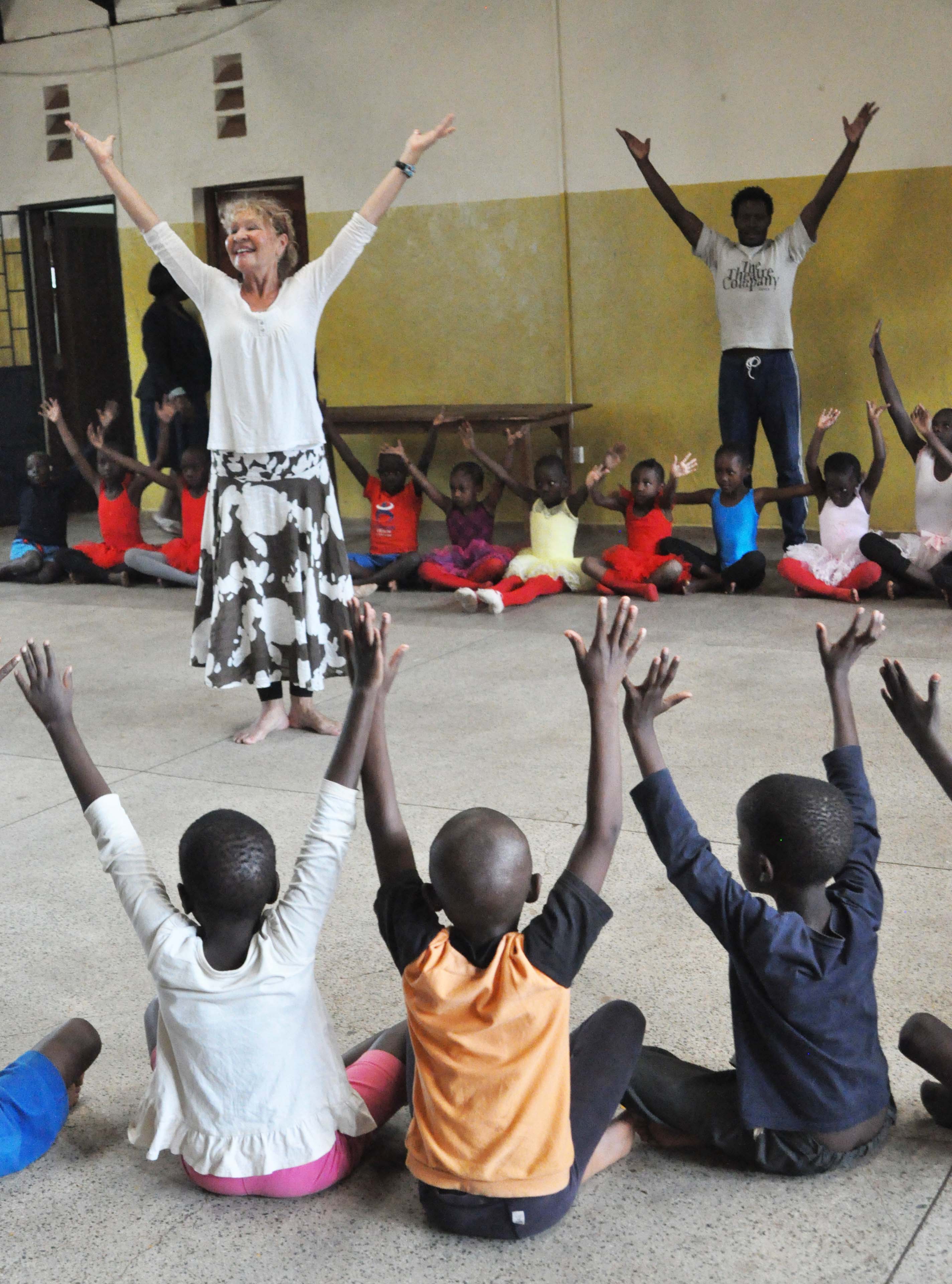
4) What does arts education can give and can teach to the children of the poorest slums for you?
Bringing an Arts programme to the slums has been the most exciting and rewarding experience of my life.
The children in the programme are “uncluttered” compared to children of a similar age in our Western culture, they learn so quickly and display real talent and tenacity. I teach them ballet a word they had not even heard when I started nearly 11 years ago.
I have noticed how seriously they take their tuition especially when they put on the ballet costume, a leotard a skirt tights and ballet shoes they take great pride in this and look after their own costumes keeping them clean against all odds. The children gain confidence they learn to concentrate and this in turn improves their focus during school lessons.
5) Which is the hardest part of your activity as dance teacher? And the most inspiring one?
One of the hardest parts of being a ballet teacher in the slums is preparing the classroom for ballet.
All the desks need to be moved outside and then the floor needs to be swept clean, this is done with short brushes tied in a bundle and raises a red cloud of toxic dust which is then damped down with splashes of water if it has been raining the floor has to be mopped up with rags and the filthy water wrung out outside the classroom.
You can imagine how difficult it is for the children to keep their ballet clothes clean, often we abandon the ballet shoes and we all including myself dance in bare feet.
The most inspiring moments are when the whole class has learnt a step the music is working and in unison they dance, they always look so happy and filled with the joy of dance.
6) Tell us a story that will remain forever in your heart
One story that moves me happened during the second year of my teaching.
I had started training Mike Wamaya in the Royal Acadamy of Dance syllabus and we had around 48 girls and 1 boy. He was a very brave little boy and held his own amongst such a large class of girls.
We did a concert at the end of the 12-week programme and we made flowers out of crepe paper and sewed them onto headbands for the girls and ribbons for their wrists for little Ali we made a red sash and dressed Mike the same, they looked wonderful.
About two weeks later one of the teachers at the school told me Ali’s dad who was a very old man, made his way slowly to the school to talk to the head teacher about Ali, he said he did not fully understand ballet and what it was but he was very grateful that Ali was learning it because he was a changed boy.
He had been very introverted and had fallen behind in his school work but since he had started learning ballet everything had changed he was happier and much more confident and his school work had put him into the top children in his class because his focus and concentration had improved.
This story has been repeated over and over again with the children in the Arts Programme so even if they do not become performers or artists the opportunity to study the arts is a vital component in their lives and will help broaden their horizons and lead to confidence in any field of work they pursue.
If you want to follow Anno’s Africa project:
Website: http://www.annosafrica.org.uk/
Facebook: Anno’s Africa
Twitter: @Annos_Africa
Instagram: annosafrica
